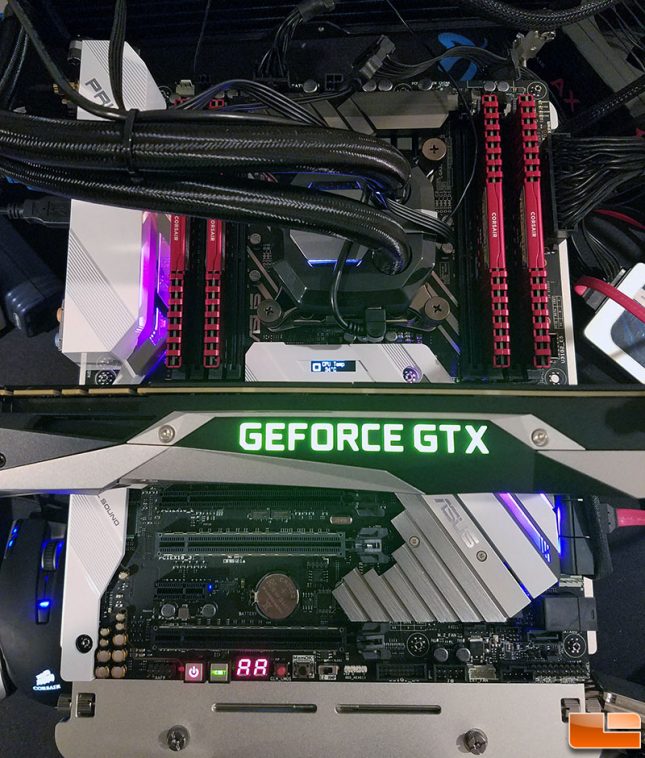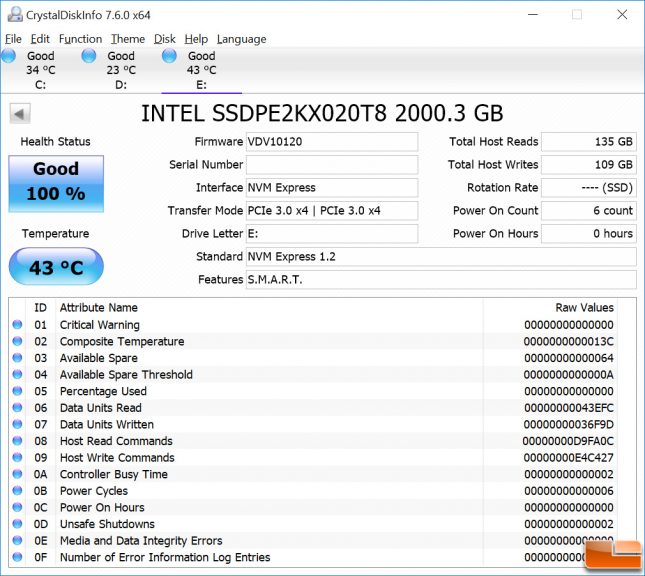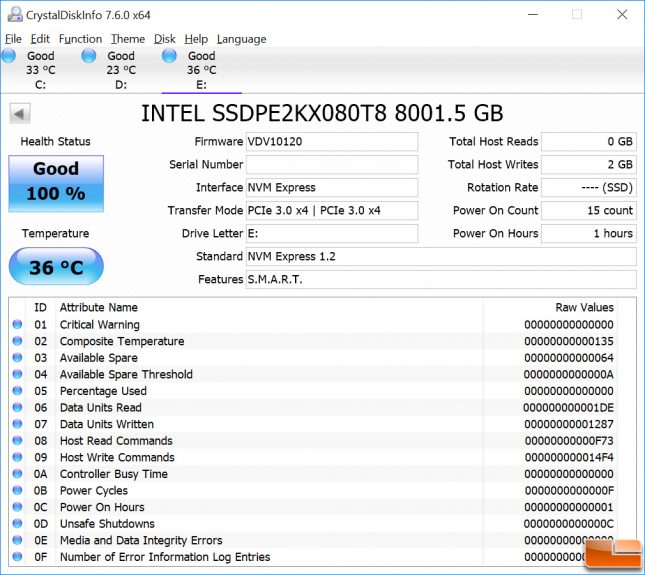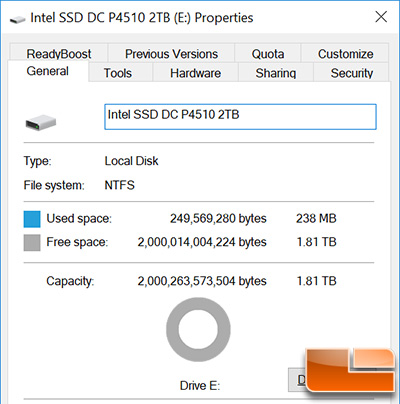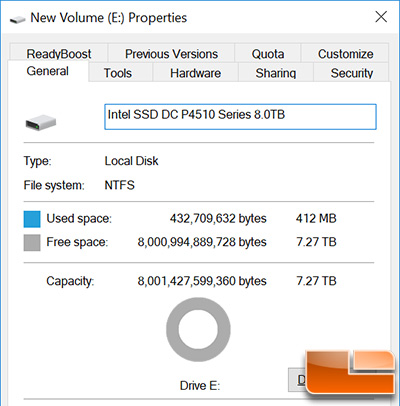Intel SSD DC P4510 NVMe PCIe Review
The SSD Benchmark Test System
Before we look at the numbers, lets take a brief look at the test system that was used. All testing was done on a fresh install of Windows 10 Pro 64-bit (version 1709 build 16299) and benchmarks were completed on the desktop with no other software programs running. This means windows defender, windows update, disk fragmentation and everything else that would interfere with testing was disabled. Windows 10 also had the power option set to high performance and we also disabled c-states and Turbo mode on the Intel Core i9-7960X to ensure our numbers are spot on and repeatable.
Intel X299 Platform:
The Intel X299 platform that we used for testing consisted of the ASUS PRIME X299 Deluxe motherboard. We ran the motherboard with BIOS 1301 that came out on March 20th, 2018. We used Intel Chipset Driver v10.1.1.45, Intel Management Engine Interface v11.7.0.1057 and Intel RST v15.9.0.1015 drivers. The Corsair Vengeance 32GB 4000MHz DDR4 dual channel memory kit was set to XMP profile 1. We used an NVIDIA GeForce GTX 1080 Ti 8GB Founders Edition video card with GeForce 391.24 WHQL drivers. We also used the Corsair AX860i digital power supply, Corsair Hydro Series H115i water cooler and Crucial MX500 SSD for the boot drive.
Intel X299 Test Bench
| Intel LGA 1151 Test Platform | |||||
|---|---|---|---|---|---|
| Component | Brand/Model | Live Pricing | |||
|
Processor |
Intel Core i9-7960X | ||||
|
Motherboard |
ASUS PRIME X299 Deluxe | ||||
|
Memory |
Corsair Vengeange LPX 4000MHz 32GB | ||||
|
OS Drive |
Samsung 850 PRO 512GB | ||||
|
Power Supply |
Corsair RM850x | ||||
|
Operating System |
Windows 10 64-Bit | ||||
CrystalDiskInfo 7.6.0 Readout:
The readout on CrystalDiskInfo 7.6.0 shows that the Intel SSD DC P4510 series supports S.M.A.R.T. and the NVM Express 1.2 standard. The drive we received had firmware version VDV10120 (also known as 0120) installed and that is the version that we used for general testing and benchmarking.
The overall capacity shows up as 1.81 TB on the Intel SSD DC P4510 2.0TB and as 7.27 TB on the Intel SSD DC P4510 8.0TB in Windows 10 version 1709. Please remember that 1GB = 1,000,000,000 bytes. A certain portion of capacity may be used for system file and maintenance use, thus the actual available capacity may differ from the labeled total capacity.
Let’s have a look at the performance!

